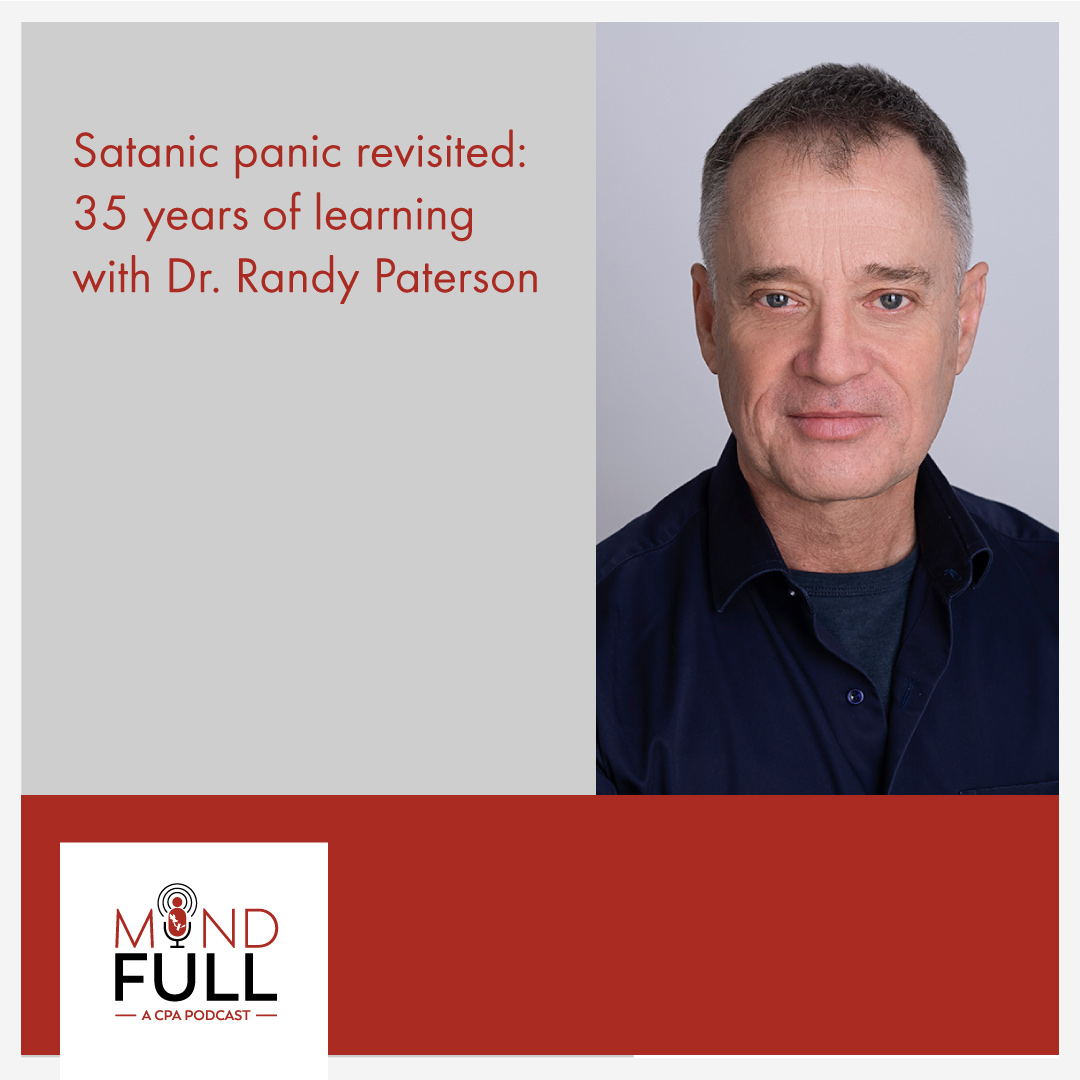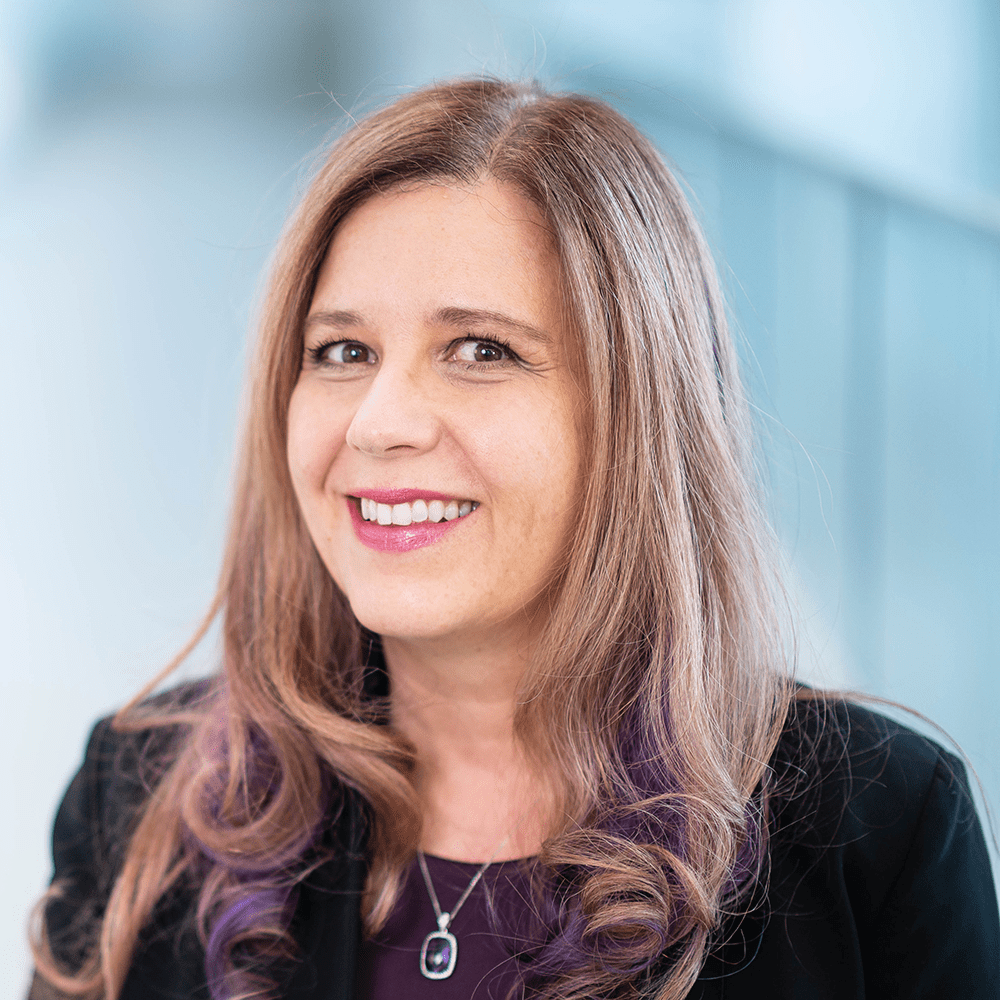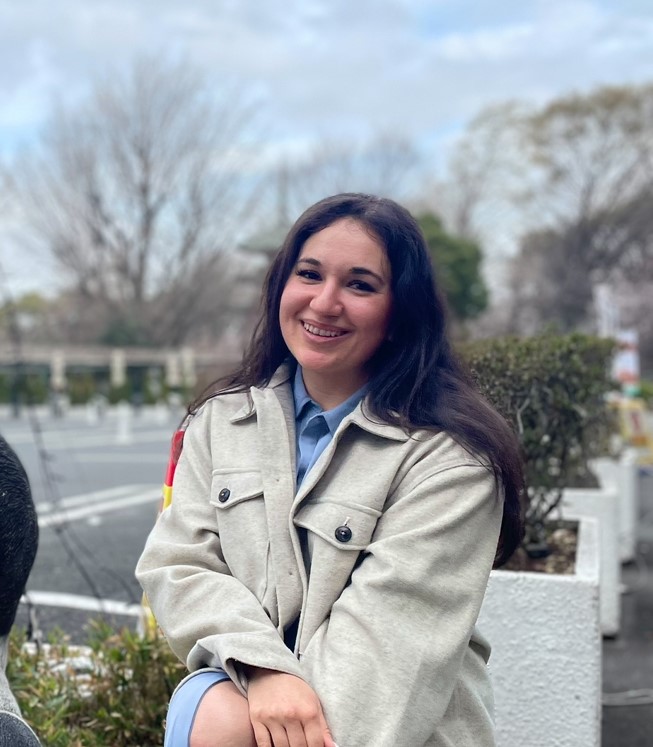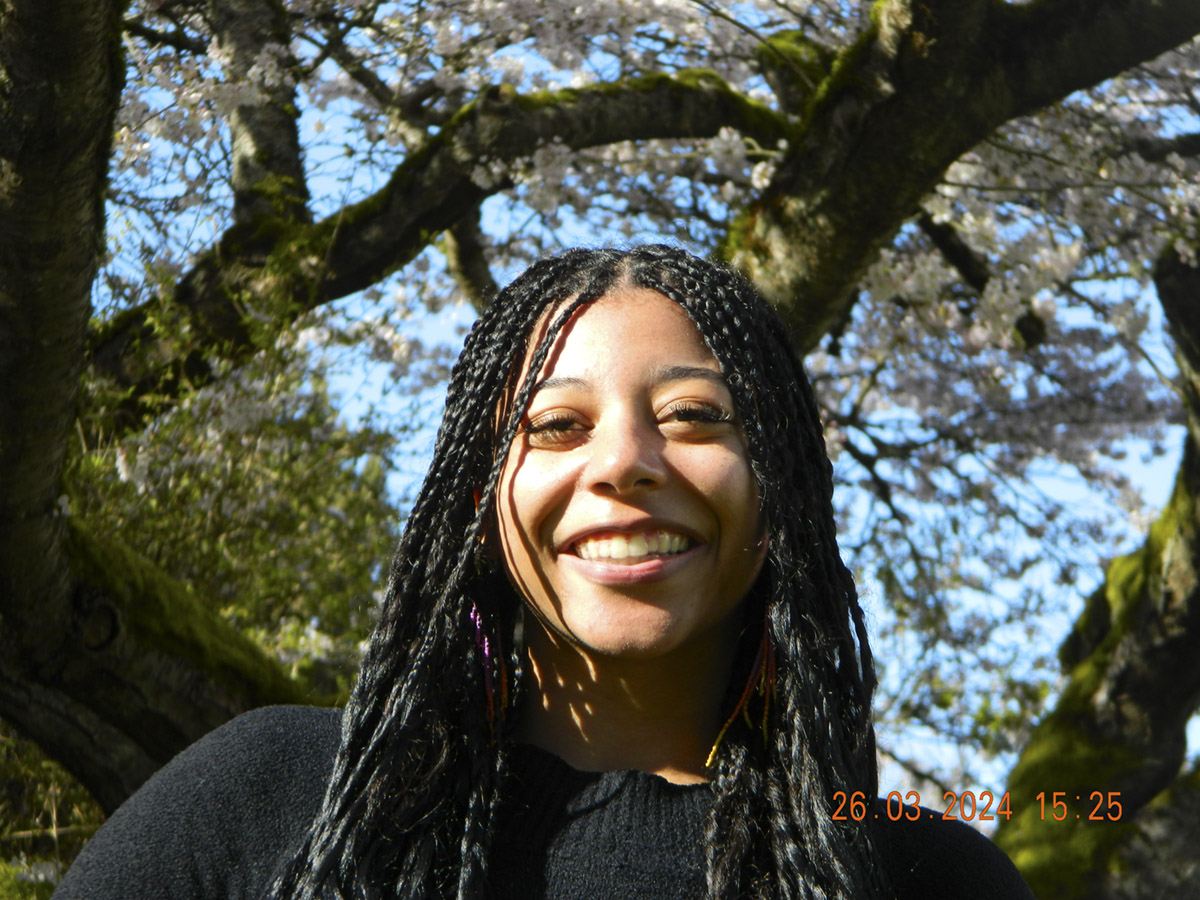The field of psychology is wide ranging and touches on innumerable subjects in the public discourse. To add the perspectives of psychologists to topical issues, CPA has launched the podcast Mind Full. Listen below for subjects that are important to Canadians, delivered through a psychological lens.

It has been more than 30 years since the Satanic Panic gripped popular culture. Millions were convinced there was an epidemic of child abuse stemming from satanic beliefs and rituals. There was no evidence to support these claims. There were TV specials, arrests, prosecutions, and even convictions – all based on something that never happened. Dr Randy Paterson joins Eric to look back at this phenomenon. He draws a parallel to today’s QAnon beliefs, and points out psychology’s role not only in explaining the panic in retrospect, but in fueling the flames in the first place.
Archived Podcasts
Mind Full Soundcloud
PROFILES

Psychologists, students, and others with psychology backgrounds, are doing incredible things across Canada. Here, we highlight just a few of those people who are helping others and living interesting professional, and personal, lives of their own.

Liisa Galea
Dr. Liisa Galea is a scientific lead for the CAMH (the Centre for Addiction and Mental Health) program womenmind™. It’s a community of philanthropists, thought leaders and scientists dedicated to tackling gender disparities in science, and to put the unique needs and experiences of women at the forefront of mental health research.
Visit our 2025 Psychology Month page as we add spotlights throughout February.
Archived Profiles
Student Spotlight

Maureen Plante was the recipient of a 2024 CPA Indigenous Psychology Student Award for her work at the University of Calgary studying disrupted orders of eating from an Indigenous perspective.
Maureen Plante est Iroquoise-Crie-Métisse du côté de son père, tandis que sa mère est d’origine allemande. Ayant souffert d’un trouble de l’alimentation à l’adolescence, elle a été amenée à faire une recherche de maîtrise à l’Université de Calgary, qui portait sur les troubles de l’alimentation dans une perspective autochtone. Elle a grandi en s’identifiant avant tout comme Crie, une communauté autochtone qui se souvient encore de l’époque où les bisons parcouraient les plaines canadiennes en vastes troupeaux quasi infinis.
L’éradication des bisons des plaines occidentales de l’Amérique du Nord au cours des 18e et 19e siècles est une illustration frappante du conflit entre les traditions autochtones et la philosophie coloniale européenne. À la fin des années 1700, on estimait à 30 millions le nombre de bisons vivant dans les grandes plaines nord-américaines.
Jusqu’à cette époque, les peuples autochtones de l’Ouest canadien vivaient aux côtés des bisons, qu’ils chassaient pour leurs fourrures et leur viande. La terre était un partenaire partagé qui assurait la subsistance de la population. Lorsque les colons sont arrivés, ils ont introduit une mentalité différente, celle de l’exploitation des ressources et du capitalisme. L’abondance de bisons des plaines et de bisons des bois permettait de réaliser d’énormes bénéfices sans grand effort, et la chasse a commencé sérieusement.
Pour les populations autochtones, cela signifiait qu’elles devaient elles-mêmes s’adapter à la nouvelle réalité. Elles devaient désormais entrer en concurrence avec les chasseurs blancs pour le moindre animal et étaient contraints, pour survivre, de passer d’une relation de coopération à une relation d’exploitation des ressources. Beaucoup sont devenus des chasseurs de bisons nomades, vendant des peaux et d’autres objets en échange des nécessités de l’existence. La nourriture n’était plus une partie évidente et intégrante de la vie, comme l’air et l’eau, mais une marchandise.
Il serait exagéré d’établir un lien direct entre l’éradication du bison et les troubles de l’alimentation qu’a connus Maureen Plante quelque 200 ans plus tard. Mais en même temps, il ne faut pas négliger ce lien. Ces dernières années, les traumatismes historiques ont fait couler beaucoup d’encre, notamment en ce qui concerne les souffrances subies au fil des siècles par les peuples autochtones du Canada. Mais nous commençons à peine à effleurer la surface de ce que cela signifie vraiment, et la façon dont les traumatismes historiques nourrissent les problèmes que nous observons aujourd’hui.
Maureen a grandi dans une très petite collectivité située à l’extérieur d’Edmonton, où l’accès aux services était très limité. Lorsqu’elle a développé un trouble de l’alimentation à l’adolescence, il y avait très peu de ressources dans sa région immédiate, et même dans les centres urbains voisins, il n’y avait guère de soutien centré sur les Autochtones. À l’âge de 16 ans, Maureen s’est juré d’aider d’autres personnes qui avaient le même type de comportements alimentaires perturbés, et elle n’a jamais cessé de poursuivre cet objectif depuis.
Elle a obtenu son baccalauréat avec spécialisation en psychologie à l’Université MacEwan d’Edmonton, sa maîtrise à l’Université de Calgary et elle prépare actuellement un doctorat en psychologie du counseling à l’Université de l’Alberta. Au cours de cette période, elle a travaillé au Eating Disorder Support Network of Alberta de différentes manières, notamment comme bénévole. Bien que Maureen ait toujours parlé ouvertement et avec vigueur des comportements alimentaires perturbés, ce n’est que lorsqu’elle a obtenu sa maîtrise qu’elle a pu commencer à explorer les points de vue autochtones dans le cadre de son travail.
À cette fin, Maureen a travaillé avec des femmes autochtones – thérapeutes, psychologues, travailleuses sociales – qui proposaient des thérapies fondées sur le modèle IFOT. L’Indigenous Focusing-Oriented Therapy (thérapie autochtone axée sur l’individu) est une modalité thérapeutique historiquement pertinente et adaptée, qui adopte une approche de la guérison basée sur les forces. Elle correspond à ce que font les chercheurs et les praticiens autochtones lorsqu’ils travaillent avec des Autochtones. La « grand-mère de l’IFOT », Shirley Turcotte, a travaillé avec Eugene Gendlin, créateur de la FOT, pour créer cette approche, estimant que les points de vue autochtones étaient négligés, en particulier la relation que nous entretenons avec nos ancêtres et toutes nos relations.
Maureen, qui prépare actuellement son doctorat, a déjà reçu le Prix pour les étudiants autochtones 2023 de la SCP pour le travail qu’elle accomplit et qui cherche à approfondir tout ce qu’elle a fait jusqu’à présent.
« J’ai entendu les praticiens qui dispensent l’IFOT, je veux entendre dorénavant les Autochtones. Certaines femmes vivant dans des centres urbains m’ont raconté qu’elles avaient vécu des perturbations des comportements alimentaires et qu’elles s’étaient parfois rendues à l’hôpital pour y recevoir des soins. Cela ne les avait pas aidées. Je souhaite également comprendre le rôle que jouent les traumatismes historiques dans le développement de comportements alimentaires perturbés chez les Autochtones, car j’ai l’impression que cet aspect a été négligé.
Les troupeaux de bisons n’ont jamais été près de se reconstituer complètement, et on estime aujourd’hui à 20 000 le nombre de bisons sauvages vivant en Amérique du Nord, soit 0,0007 % de ce qu’il était il y a 200 ans. Pendant ce temps, les communautés autochtones qui pratiquaient l’agriculture depuis des centaines d’années ont dû modifier leurs pratiques, car l’accent était mis désormais sur les monocultures.
Autrefois, les arêtes des poissons de la rivière fertilisaient les haricots qui fournissaient de l’azote au maïs. Les gens se nourrissaient de poissons, de haricots, de maïs et de courges qui étaient cultivées autour des cultures pour les protéger des animaux affamés. Lorsque le gouvernement canadien a commencé à construire un chemin de fer à travers le pays, la marchandisation de l’agriculture a été l’un des moyens qu’il a utilisés pour priver les populations autochtones de leurs droits. Dans cette région, on cultivait désormais de l’orge, et uniquement de l’orge. Dans cette autre région, c’était du lin, dans la région voisine, c’était du canola, tout cela dans le but d’expédier et de vendre le produit.
Les communautés autochtones agraires ont dû soit modifier leurs pratiques pour participer à ce nouveau paradigme, soit se déplacer vers des zones moins fertiles pour essayer de pratiquer une agriculture de subsistance, en espérant pouvoir cultiver suffisamment pour faire vivre leurs familles d’un hiver rigoureux à l’autre. Toutes n’ont pas pu le faire.
L’une des notions centrales de l’IFOT c’est qu’en se concentrant sur soi-même, on peut trouver son propre « remède », c’est-à-dire ce qui fonctionnera pour soi pour traiter ses problèmes de santé mentale. Lorsque Maureen a fait sa maîtrise, elle a été initiée à cette pratique. Pour elle, cela a fait remonter beaucoup d’herbe et de blé, et elle a découvert que le blé était son remède. C’était une prise de conscience étrange, car son trouble de l’alimentation faisait que son cerveau lui disait que le blé était mauvais. Cette révélation a changé son point de vue sur sa relation avec la nourriture et l’a éclairée sur le croisement entre l’identité autochtone et les comportements alimentaires perturbés.
« L’une des choses les plus importantes qui ont été partagées par les aînés et les porteurs de connaissances est la suivante : “Le DSM-5 [Manuel diagnostique et statistique des troubles mentaux, la classification standard des troubles mentaux utilisée par les professionnels de la santé mentale] est basé sur des catégories dans lesquelles on retrouve différents types de troubles du comportement alimentaire (anorexie, boulimie, etc.).” Les gardiens du savoir autochtone affirment que ce type de pensée eurocentrique rompt l’interconnexion. Ma recherche de maîtrise soulignait vraiment l’interconnexion et l’enracinement dans le contexte du colonialisme. Depuis le contact avec les Européens et tout au long de l’histoire, l’accès des peuples autochtones aux aliments traditionnels et aux droits de chasse, entre autres, a été très controversé. Beaucoup de choses se sont passées ici, qui ont modifié notre relation avec la nourriture et notre lien avec la terre. Comme la Loi sur les Indiens, des lois qui ont des répercussions sur notre relation. Un aspect sur lequel j’ai vraiment insisté dans ma recherche de maîtrise était la nécessité de commencer à changer notre relation avec le terme « troubles de l’alimentation » afin de ne pas les pathologiser, mais plutôt de les situer dans le contexte du colonialisme ».
Dans le cas des comportements alimentaires perturbés, le poids, la forme du corps et l’idéalisation de la minceur sont des préoccupations très présentes, du moins, en Amérique du Nord où le DSM-5 est le plus utilisé. Maureen est curieuse de savoir si cette idéalisation de la minceur est un phénomène qui touche toutes les cultures. Il est difficile d’obtenir des données sur les taux de comportements alimentaires perturbés chez les Autochtones et sur la répartition entre zones rurales et urbaines, car la plupart de ces données proviennent des programmes de traitement, auxquels très peu d’Autochtones sont inscrits. Certains chercheurs non autochtones affirment qu’il faut que les Autochtones s’expriment davantage sur le sujet.
« Beaucoup d’articles que j’ai trouvés parlent encore du DSM-5, du taux de prévalence, etc. La dimension narrative fait défaut, et nous ignorons un grand nombre de choses, ce qui, je le crains, nous amène par inadvertance à mettre des étiquettes sur les Autochtones (ou même sur les non-Autochtones). »
Maureen est en passe de devenir une voix autochtone forte sur le thème de la perturbation des comportements alimentaires. Son histoire se nourrit de son expérience personnelle, mais aussi de la décimation de la population de bisons, du passage à l’agriculture de subsistance, de la famine qui régnait dans les pensionnats et de toutes les autres indignités qui ont bouleversé la relation des peuples autochtones avec la terre et leur nourriture. Son avenir se nourrit de cette histoire, mais aussi de l’IFOT, du DSM-5 et d’un parcours universitaire remarquable et primé dans certains des meilleurs établissements d’enseignement supérieur de l’Alberta. Nous sommes impatients de découvrir les enseignements précieux que cet avenir radieux nous apportera!
Questions pour faire connaissance
Avez-vous un livre préféré?Je crois que oui… Les Méditations de Marc Aurèle. Il y a quelque chose dans ce livre qui fait vraiment réfléchir, qui est philosophique et qui donne de bonnes leçons de vie. Je suis quelqu’un sur les médias sociaux qui en parle beaucoup, et cela m’a donné envie de m’y plonger. Je l’ai lu entre ma maîtrise et mon doctorat, et je me concentrais vraiment sur la psychologie. J’ai trouvé que la TCC comportait un élément de questionnement socratique, et ce livre semblait intéressant à lire dans cette perspective. Lors du congrès de la SCP de 2022, j’ai assisté à une présentation donnée par deux messieurs sur le stoïcisme et la TCC, qui m’a fait penser aux Méditations et m’a donné l’impression d’une certaine convergence de vues avec les miennes!
Si vous pouviez être une experte dans un autre domaine que la psychologie, quel serait-il?
Quand j’étais plus jeune, je voulais devenir biologiste marine. J’aime les animaux, et je suis folle des raies. Récemment, j’ai beaucoup lu sur le comportement des loutres. Je sais que des recherches sont en cours sur les loutres et que les chercheurs travaillent avec les communautés autochtones pour savoir comment favoriser les relations entre humains et loutres.
J’ai lu une étude sur les loutres et les dauphins, car les loutres et les dauphins peuvent tous deux utiliser des outils, mais les loutres ont précédé les dauphins en ce qui concerne l’utilisation d’outils.
Avez-vous un sport préféré?
Non, pas vraiment, mais j’ai commencé récemment à regarder le hockey avec mon copain. J’aime aller au centre d’entraînement physique et être active, alors je fais de la musculation et d’autres choses de ce genre.
Si vous pouviez passer une journée dans la tête de quelqu’un d’autre, ce serait qui?
Je pense que c’est parce que je suis à ce stade de ma vie, mais je dirais mon conjoint. C’est un charpentier certifié Sceau rouge et son travail est complètement différent du mien. Il travaille de ses mains, c’est un as des mathématiques, et il est capable de visualiser un espace et de savoir comment y configurer les choses. C’est un travail difficile, et j’aimerais vraiment passer une journée dans son cerveau pour comprendre son univers et sa façon de voir les choses. J’admire les gens de métier, qui font des tas de choses extraordinaires, et je reconnais que je ne suis pas très douée pour tout ça! En outre, en tant qu’êtres humains, nous ne savons pas vraiment comment nous sommes reçus par les autres!
Quel est le concept psychologique qui vous a le plus surprise lorsque vous en avez entendu parler pour la première fois?
J’ai fait un baccalauréat en psychologie sociale, et j’aime encore beaucoup cette discipline. Je pense à l’étude de la prison de Stanford, l’expérience de Asch, qui font ressortir, en quelque sorte, le côté sombre de l’expérience humaine, et je trouve tout cela vraiment fascinant. Aussi, tout ce qui a trait à la personnalité me fascine, comme le modèle de personnalité à cinq facteurs. En ce moment, je lis des travaux de chercheurs qui parlent de cela dans le contexte du travail, des études, etc.
Si vous ne pouviez écouter qu’un seul musicien ou chanteur jusqu’à la fin de votre vie, ce serait qui?
J’aime beaucoup la musique classique, alors je répondrai Bach.

Trinity Stephens was the recipient of a 2024 CPA Indigenous Psychology Student Award for her unconventional work as an undergrad at UBC.
There are certain things we expect from other people in terms of their behaviour. We expect people to turn right when their right turn signal is on. We expect that when we order a coffee that the barista will put it in a cup, and that fellow bus riders will refrain from doing chin-ups on the hand-hold bars. Or, that when we get on an elevator, everyone will face the door and the buttons, avoid eye contact, and ride up to their floor in silence. And these expectations are mostly confirmed by others. Unless, perhaps, you get on an elevator with Trinity Stephens.
“Even when I was a child I never did what other people did, but it was when I became a psychology student that I realized how odd it is. We had this one social psych class where the prof sent us on missions. Like, go into society and break social norms. So for a week straight, I would go into the elevator and face everyone. While everyone faces the one direction, I was looking the other way. Just forcing myself to overcome the idea that I had to do what everyone else was doing. People hated it, especially if I was with my friends. They got really annoyed with it, and I could see the anxiety it provoked in people.”
Trinity is going into her final year of her undergrad at UBC. She’s Mi'kmaq, Métis, and Jamaican, and recently received a CPA Indigenous Psychology Student Award for her work in school – where she is doing a bachelor of arts with a psychology major, and also a minor in law & society and a minor in education.
Ever since she was a child, she had an instinct to help other people. A psychology course in high school intrigued her, and she became rapt with the idea of learning about the actions of people, and the motivations for those actions that often go unnoticed. Soon, she was looking to start an undergrad in psychology, with the goal of one day becoming a counselor for people in her community.
Trinity visited the UBC campus and immediately fell in love. Coming from the chaotic, bustling environment of Toronto, the feel of a community network, in close proximity to nature was appealing – and something far different from her familiar hometown feel. She says she feels peaceful while she’s there.
“There are actual forests on campus, and there are cherry blossoms all over, and there’s even our own Zen garden that’s really well kept up. I thought if I’m going to spend any time anywhere doing anything, I want it to be for psychology and I want it to be here.”
While at UBC, Trinity has been working at the Alpine Counseling Clinic in Vancouver as a neurofeedback technician. She works on weekends, where she sees anywhere from 4-12 clients a day, ranging in age from 4-80 years old. As Director of Feedback, she’s providing what she calls a Western form of healing, a dynamic she finds very interesting. She has 30-minute sessions with clients helping them “connect with themselves”, honing in on how they’re feeling inside and what’s causing stress and anxiety in their lives.
The connection between Western ways of healing and traditional ways is a subject of particular interest for Trinity. She is enthusiastic about both and believes that the one can enhance the other and vice versa.
“My main goal was to be a counsellor for BIPOC people, specifically in Black and Indigenous communities. There’s a lot of stigma around therapy because it’s something we’re not really used to, but it is something all our ancestors have done. So I thought that by being able to study the Western side would give me an advantage because I already have a lot of my ancestral and holistic knowledge. Even while studying psychology, I’ve noticed there’s a lot of overlap with traditional medicine and traditional ways of healing. It made it a natural thing for me to learn.”
Her love for UBC and the campus community led Trinity to apply for her Master’s program there – and only there. She was not accepted, so for the time being she is considering some other options before once again trying for her Master’s. One option might be becoming a life coach for post-grads, recognizing how much of a whirlwind it is for them right now. Another option is to become a doula.
Doulas help mothers through their pregnancies. They work with them up to the point of giving birth, and also work with them after the birth to help with things like feeding and support. Says, Trinity, “it’s especially helpful in Black and Indigenous communities to help mothers with their birthing journeys, reducing trauma for both the mother and the child. I think that would be a really nice accent to my resume when I do apply for the Master’s in the future. It can also be really expensive so I want to have a sliding scale for people who might not otherwise be able to afford it.”
It would be an unconventional choice of gap year activities, but unconventional choices are on-brand for Trinity. Iconoclastic thinking, an embrace of numerous ways of knowing and healing, and a desire to help the people around her suggest that no matter what Trinity chooses to do, her communities will be all the better for it.
Get to know me questions
- You can listen to only one musical artist/group for the rest of your life. Who is it?
- Do you have a sport? What is it and do you watch, play, follow it?
- Favourite book
- Favourite quote
- If you could spend a day in someone else’s shoes who would it be and why

